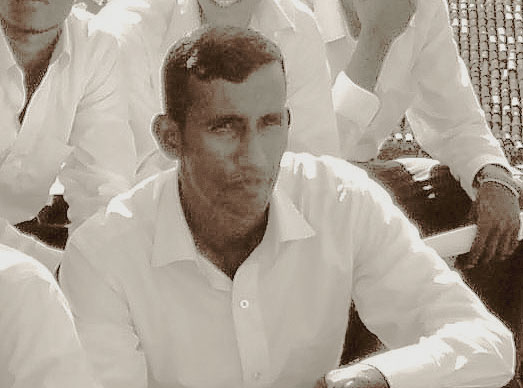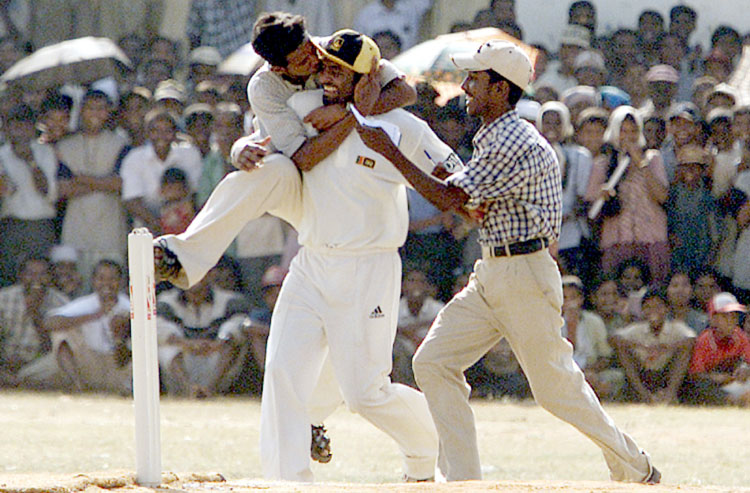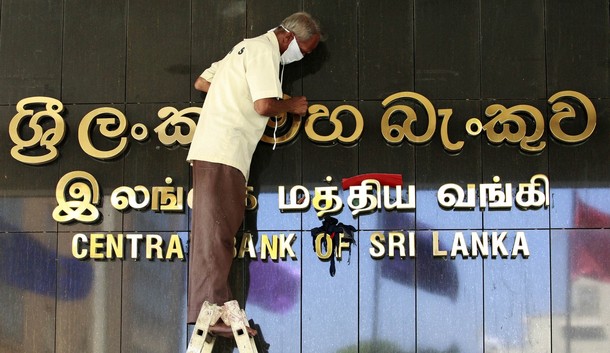
Colombo Today
.............................................................................................................................................................................................
Bandara succumbed to his injuries last night after an assault by the police during a protest demonstration on June 18.
Convener of the Inter University Students Federation, Udul Premaratne said that the Minister has said in a recent television programme that the students who jeered will be sent to jail and this posed a threat to these students.
The protest was held as a mark of protest against the minister's remark, he added.
He further said that the Minister, who is boasting to privatize education, is evading a challenge by the IUSF for a debate on privatizing education.
Meanwhile, the class boycott at Sabaragamuwa University, which prevailed for over a fortnight, ended today.
The boycott was held as a mark of protest against the suspension of four students.
The boycott ended after Vice Chancellor of the university, Prof. S. Rupasinghe forgave the suspended students.
© Colombo Today
.............................................................................................................................................................................................
Friday, July 23, 2010
Sri Lanka: University student dies after Police assault
Friday, July 23, 2010
Sri Lanka: Journalist assaulted in Mannar

Daily Mirror Online
.............................................................................................................................................................................................
Speaking to Daily Mirror online from his hospital bed this morning, Anthony Mark said that he was assaulted by men wearing face masks while he was on his way to the Temple last night.
The senior correspondent who is also physically feeble owing to his old age, said that one man had approached him and attempted to take him to a parked van. After refusing to do so the journalist was physically assaulted and an attempt was then made to take him by force.
However on seeing another vehicle approaching them, the gang fled the area in the van together with a diary, some books and other material which were in the possession of the correspondent.
Anthony Mark claimed that some groups who had opposed his writing on the plight of Internally Displaced People (IDP) in Mannar had often branded him an LTTE supporter and at time leveled threats against him and feels those groups maybe behind the assault.
© Daily Mirror Online
Friday, July 23, 2010
Murali: A genuine sporting king in a world of unworthy princes

By Martin Kettle | Guardian
.............................................................................................................................................................................................
Would the guileful Sri Lankan bowler – the greatest Asian sportsman of all time, perhaps – cap his final game by dismissing an unprecedented, still almost unbelievable, 800th test match victim? For the many who neither know nor care about such things but who are sufficiently motivated to read on, it may be helpful to understand that only two other bowlers in addition to Muralitharan has ever dismissed more than 600 batsmen in his career and that in nearly a century and a half of trying no Englishman has ever exceeded 383. That's how much in his own league Murali is. In mid-morning came the inevitable confirmation that he had done it.
Murali is simply the best. But don't take my word for it. Take the word of someone who played against him many times without ever fully mastering Murali's array of skills. Batting against him, wrote Steve Waugh, the combative former Australian captain, was the ultimate challenge, "enticing then withdrawing, probing before striking, each delivery a mini-battle". Murali possesses a very even temperament, Waugh says, but like all great artists in any field "he is also focused and driven, always looking to extend his repertoire". In the end, Waugh concludes, "one can only marvel at his unsurpassed record".
There is, however, something beyond the record. Put aside, for a moment, the poignantly appropriate fact that Murali completed his career yesterday on the cricket field at Galle that was swamped by the 2004 tsunami for whose victims he has worked so tirelessly ever since. Put aside, too, the remarkable truth that in a nation, and in a national team, dominated by the majority Sinhalese population during a period of brutal ethnic civil war, this nonpareil player is from the minority Tamil population. Put aside, for that matter, the fact that not one of Mr Murdoch's many TV channels, happy to carry any amount of live darts and minor league football, could be bothered to broadcast yesterday's milestone moment live.
Instead consider this. Amid the overpaid egos and pampered brats who populate so much of contemporary sport, Muralitharan seems to stand almost completely apart, the proverbial good deed in what often feels like an ever naughtier sporting world of drugs, bribes and cheating. With achievements like his on the cricket field, and amid the apparently unconditional adulation of his divided nation, Muralitharan could so easily have become the worst kind of petulant sporting diva. There are many precedents. Nor, after suffering so many insults to, and insinuations about, his bowling action for so long, would it have been any surprise if he had evolved into one of sport's most self-pitying, embittered crazy guys.
On the contrary, as far as one can see, Murali has managed to combine being one of the handful of genuine sporting legends with a calm demeanour, a warm personality and an ability to see his achievements in a healthy perspective. Yesterday, having completed his amazing feat, Murali told interviewers that he was more concerned to be remembered as a nice person than as an often unplayable spin bowler. It is impossible not to contrast both Murali's goodness and his sustained success – he had to capture eight wickets, no mean challenge, in his final game to reach 800 – with the record and demeanour of England's over-hyped footballers with their six-figure weekly wages and lack of basic skills and success.
Murali is a lesson to others too. Last weekend at St Andrews, Tiger Woods battled his way around the Open championship golf course in the wind and rain, playing neither particularly well nor badly, but looking more miserable than a multimillionaire sports star has any right to look. Over the years, I have seen Woods play several times, and I daresay I would never have gone to watch golf in the first place if it hadn't been for his all-round appeal. I once even wrote – confession time – an article about Tiger as the perfect American, a man who embodied with almost laboratory precision the combination of ability, hard work, ethnic mix, glamour and success that make a lot of Americans feel good about themselves. Oh what a fall was there.
Do not forget, though, that before he self-destructed, Woods had an on-course allure that only a handful of sports stars, or stars of any kind, could command. When you saw him approaching down the fairway, it was thrilling, like waiting for Domingo to sing. The aesthetic of his play and his demeanour were mesmerising. His ability to do something truly brilliant was unrivalled.
Over the years, Woods honed all these talents into the most gloriously intimidating aura that the sports world could offer, certainly unprecedented in golf. In modern times, only Federer's command of tennis stands comparison. At St Andrews, however, it was obvious that Woods has lost it. The aura is gone. He is just another fine player, struggling to keep up, a bit like Lance Armstrong in this year's Tour de France, although unlike Armstrong it is possible that Woods may manage to put most of it back together again one day.
The sports world will always crave faster, stronger and higher. Sporting heroes, though, are transient at best and have feet of clay at worst – in sport as in other things, certainly politics. Even Federer has begun to lose, and even Muhammad Ali lost too. And anyone who has put their faith in sporting princes over the years knows how regularly they turn out to be unworthy of the worship that we lavish on them. The day Fred Trueman told the Yorkshire Evening Post he always voted Tory was a particularly hard one for me. Perhaps, as Enoch Powell said of political careers, all sporting careers end in failure too.
But if that is true, then how to explain the amazing Murali? His career ends in triumph not failure, in acclaim not disdain, as a legend not as a loser. Unhappy the land that needs heroes, says Brecht sternly. But perhaps his preceding line – unhappy the land that lacks heroes – is actually truer after all. Idols do not have to fall, like Woods. They can also be worthy, like Murali. Or perhaps I have fallen for the, er, spin.
© Guardian
.............................................................................................................................................................................................Related articles
Friday, July 23, 2010
Sri Lanka to miss 2010 FDI goal, set up new policy

By Shihar Aneez | Reuters
.............................................................................................................................................................................................
The $42 billion economy had aimed to attract a record $1 billion FDI mainly in tourism and outsourcing after a 25-year war ended in May last year.
Jayampathy Bandaranayeka, the chairman and director general of the country's state-run Board of Investment (BOI) said the aim was ambitious.
"We are unlikely to move beyond $1 billion and investments would be more in line with what was achieved last year," Bandaranayeka said in an interview.
"The real take off will be following the budget in November. We expect 2011 to be much higher than $1 billion," he said.
Foreign direct investment hit a record $889 million in 2008, but fell in 2009 to $602 million due to the global downturn.
The end of the war, since when the stock market had surged over 152 percent, boosted Sri Lanka's growth prospects.
The new FDI policies, expected in 2011 budget, will aim to draw investments into agriculture, fisheries, business outsourcing, education, shipping, aviation, infrastructure and tourism, Bandaranayeka said.
The new policies also will rationalise tax concessions, which were given to attract foreigners due to the prolonged war.
"The government will be looking forward to a different regime of incentives that take into account the special needs of the country. The expectation is both to attract FDIs to increase investments and also to ensure the future tax base of the country is protected," he said.
Future FDI projects would be available for investors across the world in all the selected sectors and the BOI hopes to minimise all bureaucracy for foreigners.
© Reuters
Friday, July 23, 2010
Sri Lanka to sell billion-dollar bond: government

Agence France-Presse
.............................................................................................................................................................................................
Media Minister Keheliya Rambukwella said the cabinet approved the move this week, but did not announce a formal date or the tenure of the proposed bond issue.
"We have taken short-term loans on high interest and we want to set off those," Rambukwella said.
Sri Lanka issued a 500-million-dollar five-year bond in 2007 and another 500-million dollar bond in 2009.
The island has raised money through short-term loans, supplier credit and syndicated loans to meet its budgetary needs.
In February, Central Bank Governor Nivard Cabraal said the government hoped to issue a 10-year post-war bond towards the third quarter of this year, to help defray mammoth post-war rebuilding expenses.
Cabraal said the island needed about 2.7 billion dollars for the next three years to build new roads, utilities, hospitals and schools in the war-ravaged north.
The northern province, which was the stronghold of the separatist Tamil Tiger guerrillas, is picking up the pieces after troops last May crushed the revolt and ended decades of bloodshed.
The northern province accounts for just 3.3 percent of the island's 40-billion-dollar economy.
Sri Lanka is also eyeing a higher credit rating to allow the island to borrow at cheaper interest rates on the international market.
Sri Lanka's is currently rated a 'B' grade by global ratings agency Standard and Poor's, while rival Fitch rates it as B-plus. A "B" rating is five notches below investment grade.
The Central Bank of Sri Lanka this month picked HSBC, Merrill Lynch and Royal Bank of Scotland as rating advisors for its bond sale.
Sri Lanka wants to lift its credit rating to investment grade or at least 'BBB' by 2014.
© AFP
This site is best viewed with firefox

Search
Is this evidence of 'war crimes' in Sri Lanka?
Archive
- ▼ 2010 (1312)
- ► 2011 (687)
Links
- Reporters Sans Frontières
- Media Legal Defence Initiative
- International Press Institute
- International News Safety Institute
- International Media Support
- International Freedom of Expression eXchange
- International Federation of Journalists
- Committee to Protect Journalists
- Asian Human Rights Commission
- Amnesty International















